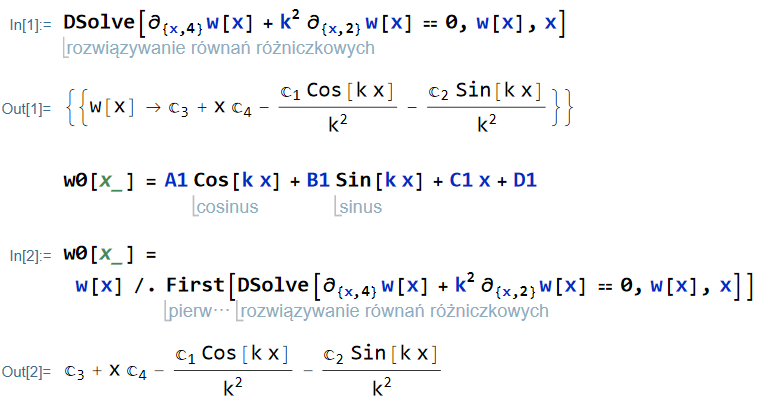I have a specific problem regarding differential equation output:
As you may see, the first input is my function.
DSolve[D[w[x], {x, 4}] + k^2*D[w[x], {x, 2}] == 0, w[x], x]
In there any way to obtain the output as shown in w0[x_] in the third line?
w0[x_] = A1*Cos[k*x] + B1*Sin[k*x] + C1*x + D1
I would like to get rid of some signs and constants from Out[1] equation which are not necessary for me: for instance, I'd like -c1/k^2 to become the unknown constant A1. I would like to get rid of other constants in a similar manner.
Would it also be possible to assign all of this as a simple equation as in In[2]?
I am rather new at Mathematica, so an easy solution would be highly appreciated.

